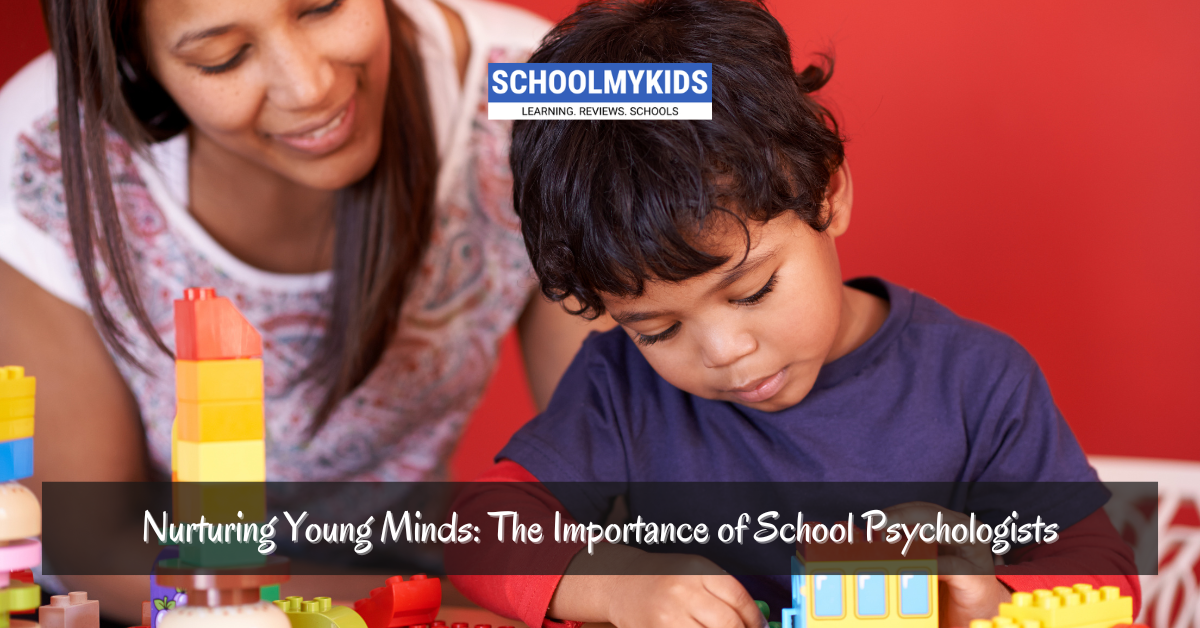In this career-oriented environment, where academic achievements often take center stage, the school psychologist plays an often-overlooked yet vital role that plays a significant part in shaping the lives of young learners. These dedicated professionals are more than just counselors; they are mental health experts who support students, helping them handle the challenges of adolescence and lay a strong foundation for future success.
As parents, we want our children to thrive academically, emotionally, and socially. However, going through the challenges of childhood and adolescence can be daunting, especially when it comes to supporting our children's mental health. This is where school psychologists play an important role in encouraging young minds and ensuring their overall well-being.
The Role of School Psychologists
School psychologists are highly trained professionals who specialize in understanding and supporting students' cognitive, behavioral, and social-emotional development. They work closely with educators, parents, and other school staff to create a supportive, inclusive environment that fosters student success.
One of their primary responsibilities is to assess and identify students who may be struggling with learning disabilities, behavioral issues, or mental health concerns. By conducting comprehensive evaluations, they can develop individualized intervention plans that address each student's unique needs.
Counselors vs. Psychologists
While both counselors and psychologists play important roles in supporting students' mental health, there are some key differences between the two professions. Counselors typically have a master's degree in counseling or a related field and focus on providing short-term, solution-focused therapy to help students cope with specific issues, such as anxiety, depression, or family problems.
Psychologists, on the other hand, have a doctoral degree (Ph.D. or Psy.D.) in psychology and are trained to provide more in-depth, long-term therapy. They also have the authority to make mental health diagnoses and can collaborate with other healthcare professionals, such as psychiatrists, to develop comprehensive treatment plans.
The Benefits of School Psychologists
Having a school psychologist on campus can provide numerous benefits for students, parents, and the entire school community. Here are some of the key ways that school psychologists can make a positive impact:
- Promoting mental health and well-being: They can provide individual and group therapy to help students develop coping strategies, build resilience, and manage stress and anxiety.
- Supporting academic success: By identifying and addressing learning disabilities, attention deficits, or other barriers to learning, they can help students achieve their full academic potential.
- Fostering positive behavior: They work with teachers and parents to develop behavior intervention plans that promote positive behavior and prevent disruptive or aggressive behavior.
- Collaborating with families: They can serve as a bridge between home and school, providing support and resources to parents and families to help them support their children's development.
- Advocating for students' rights: They are trained to advocate for students' rights and ensure that they receive the support and accommodations they need to succeed.
Conclusion
School psychologists play a huge role in nurturing young minds and supporting their mental health, academic success, and overall well-being. Working collaboratively with counselors, teachers, parents, and other school staff, they create a supportive and inclusive environment that helps every student reach their full potential.
If you worry about your child's mental health or academic performance, don't hesitate to reach out to your child's school psychologist or counselor for support and guidance. With their expertise and support, you can help your child navigate the challenges of childhood and adolescence and set them up for success in school and in life.








Be the first one to comment on this story.